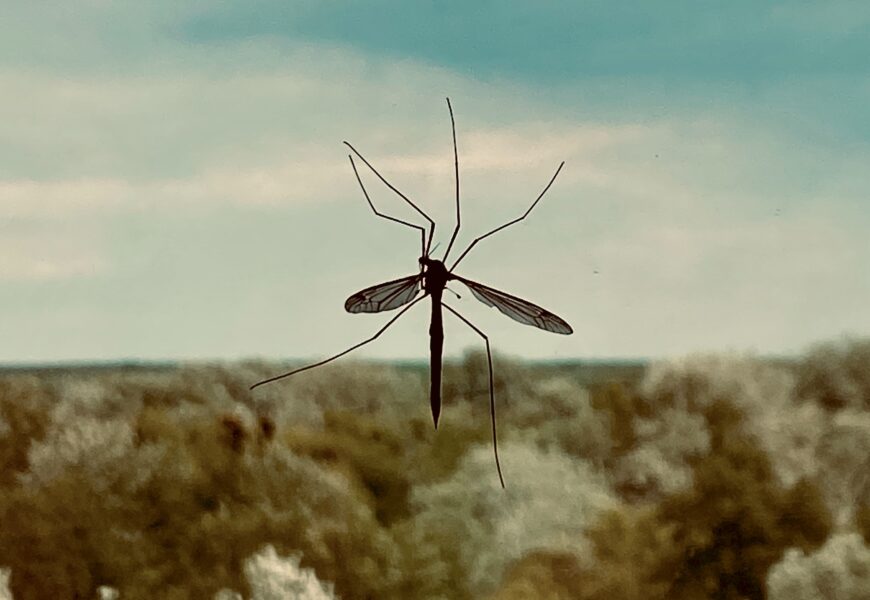Photo courtesy of Unsplash.
Mosquitoes have been a major cause of deaths and illnesses around the world for decades. In fact, mosquito-borne diseases are estimated to account for over 1 million deaths each year. The number of mosquito-borne cases from deadly viruses, such as Zika, West Nile, yellow fever, chikungunya, and dengue, has been steadily rising in U.S. states and territories, reaching a staggering 150,842 cases in 2016. With so many lives hanging in the balance, people are in urgent need of an effective solution. Since the available vaccines are only partially effective and challenging to develop, countries primarily rely on broad-spectrum insecticides to curb disease spread. But these insecticides are costly and could have detrimental effects on humans, non-target animals and insects, and the environment. Rising to the challenge, scientists have indeed made strides towards addressing this critical issue. After several years of research and dedication, scientists in the Oxitec biotechnology company have developed genetically modified (GM) mosquitoes, millions of which the company plans to release in the Florida Keys in 2021 and 2022. This proposal has already won federal and state approval.
Oxitec patented a technique known as RIDL (Release of Insects carrying a Dominant Lethal genetic system) for developing a strain GM Mosquitoes called OX513A, an altered form of Aedes aegypti which is genetically engineered to contain a dominant gene that would render its offspring unable to survive, thus, reducing the population of disease-transmitting mosquitoes. To provide non-experts with an easy, cheap method to release the mosquitos, Oxitec developed tiny water-soluble capsules that contain male larvae of the GM Mosquitoes. When placed in water, these capsules release sterile male mosquitoes, which only feed on nectar and do not bite, as opposed to female mosquitoes, which bite, and, thus, transmit disease. This project seems promising, but is it really the answer?
According to Kevin Gorman, an Oxitec scientist, the company has released millions of GM Mosquitoes in the Cayman Islands and Brazil over the years. One of the trials in an urban area of Brazil resulted in a 95% reduction in the population of Aedes aegypti. The impact has even gone beyond pilot trials: officials in Piracicaba, Brazil employed the technology to cut down on mosquito-borne cases in a neighborhood of 5,000 residents, which is now being expanded to house over 60,000 people.
Moreover, multiple governmental agencies have already underscored the safety of Oxitec’s project. Despite facing severe opposition from environmental groups, the Environmental Protection Agency (EPA) has enthusiastically approved the release of Oxitec’s GM Mosquitoes after years of investigating the potential health and environmental impacts of Oxitec’s GM Mosquitoes. The US Food & Drug Administration (FDA) has also concluded that the likelihood the GM mosquitos will have adverse effects on the environment, human health, or animal health—such as increasing disease transmission or causing mosquitoes to develop antimicrobial resistance—is extremely low and that the estimated associated risks are negligible.
Yet Oxitec’s plan to release GM Mosquitoes has prompted a sweeping backlash from the public: more than 240,000 people have already signed a change.org petition disapproving of Oxitec’s experiment. Scientists have also cautioned that it is the unanticipated outcome which is most concerning. “You have no idea what that will do,” said Barry Wray, director of the Florida Keys Environmental Coalition.
According to the same Associated Press article, Max Moreno, an expert in mosquito-borne diseases at Indiana University, raised concerns regarding the potential environmental impacts of the GM Mosquitoes: “An ecosystem is so complicated and involves so many species, it would be almost impossible to test them all in advance in a lab.” A group of researchers from Yale University took genetic samples of the mosquito population in Brazil, months after the company released the GM Mosquitoes. They found that, although the numbers of mosquitoes in Brazil plummeted after the release of the GM Mosquitoes, they bounced back up after only 18 months. They also found that a small portion of the native population had retained genes from the GM Mosquitoes. It seems that OX513A’s offspring are able to survive and breed. Nature Research suggested that the genetic mixing has resulted in “more robust” mosquito hybrids.
However, the paper received an Editorial Expression of Concern, stating that it had no data in support of the claim that the mosquito hybrids are more robust than the native population in Jakobina, Brazil. The Expression of Concern also stated that “data included in the article indicate that the number of hybrid individuals rapidly declined post-release.”
Moreover, Senior author Jeffrey Powell, a professor of Ecology and Evolutionary Biology at Yale University, said that these newly emerging mosquito hybrids pose no known health risk to humans. Nathan Rose, head of scientific and regulatory affairs at Oxitec, also said that the company is not surprised by the results, but rather by the speculations and misleading claims that were made. He also said that lab tests had shown that approximately 3% of the GM Mosquitoes’ offspring had survived and that the company was very clear about this before it conducted similar projects in Brazil, Malaysia, and the Cayman Islands.
Are GM mosquitoes the answer? Even if their release in the U.S. shows initial success, no one can be sure what effects this is going to have on the local environment in the long run. Given that Aedes aegypti is the primary vector of deadly diseases that cause thousands of deaths annually, and that the project’s potential positive outcomes could be tremendous, it is definitely worth a shot.•










